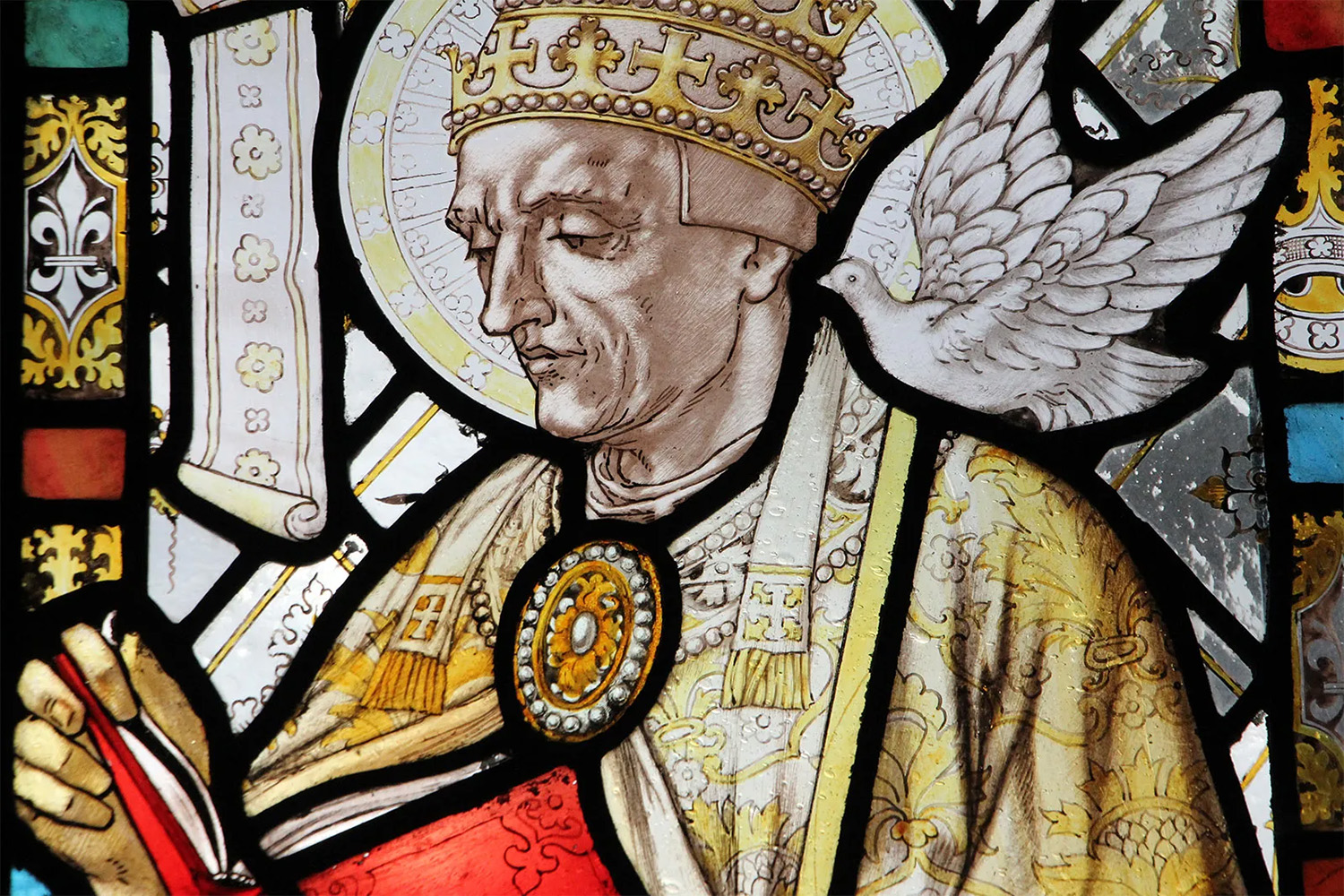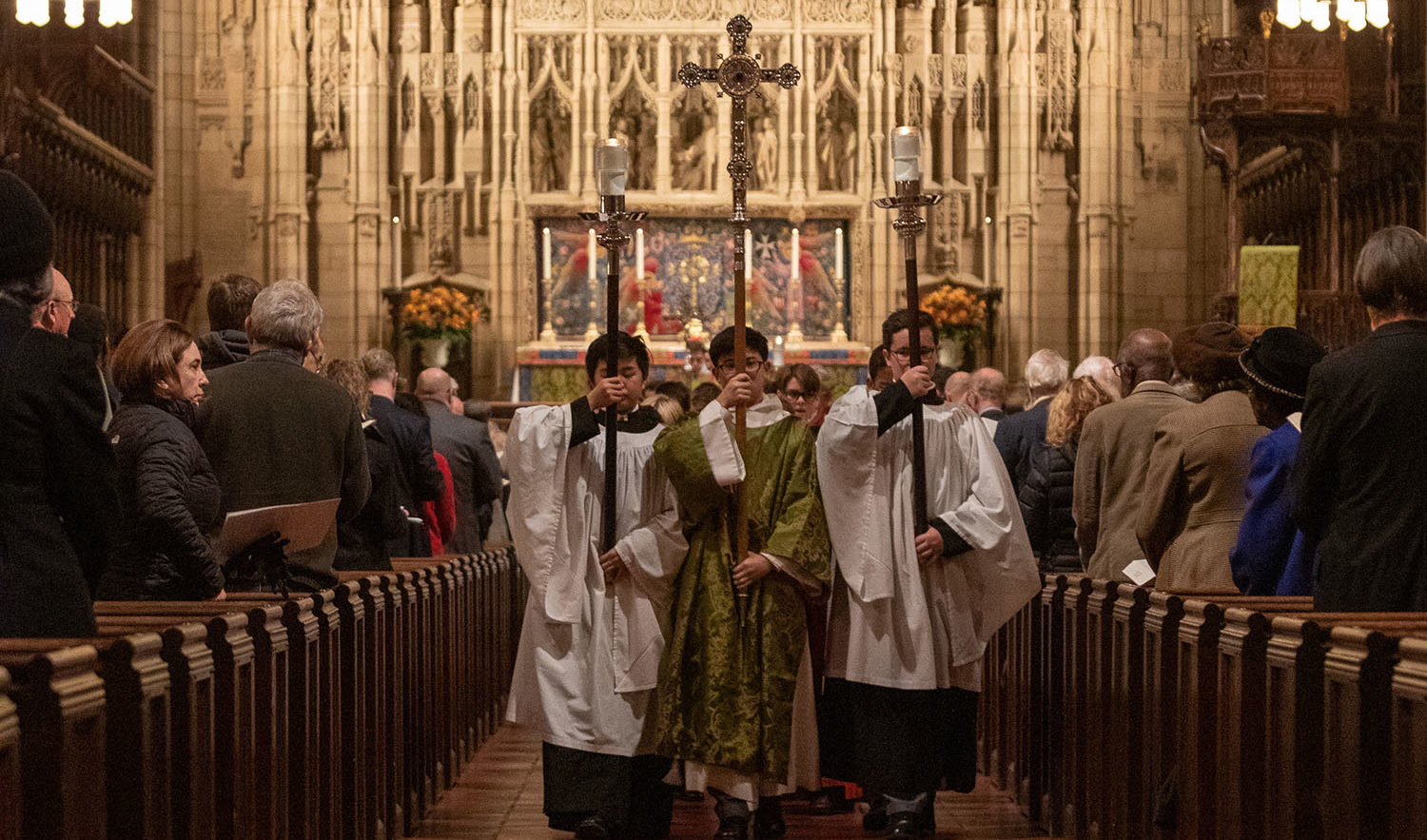Gregory the Great, Bishop of Rome, 604
Gregory the Great, Bishop of Rome, 604

Almighty and merciful God, you raised up Gregory of Rome to be a servant of the servants of God, and inspired him to send missionaries to preach the Gospel to the English people: Preserve your church in the catholic and apostolic faith, that your people, being fruitful in every good work, may receive the crown of glory that never fades away; through Jesus Christ our Lord, who lives and reigns with you and the Holy Spirit, one God, for ever and ever. Amen.

[sdgp] !is_archive() && !is_page()
[sdgp] is_singular('event')
player_status: unknown
media_player ts: [gmp] post_id: '205273'; position: 'above'; media_type: 'unknown'; status_only: '[]'
featured_AV:
media_format:
Multimedia FALSE
media_format REVISED: 'unknown'
+~+~+~+~+~+~+~+
[sdgp] show_image is TRUE
[sdgp] get image using sdg_post_thumbnail
[sdgp] img_tag found
The final three lectures of this nine-part series are presented on March 10, 11, and 12.
This course seeks to identify and analyze the main streams of Anglican thought about the one Church of the creeds. Our inquiry will combine historical and theological aspects, holding each accountable to the other: historical descriptions will be placed in conversation with normative principles from Scripture, ecumenical consensus, and authoritative doctrinal formulae, while constructive solutions will be held accountable to events and commitments of the past and the present. We will note the reality of Christian division since the 16th century, set within the patristic context of St. Augustine of Hippo. In this way, we will learn the main lineaments of traditional Western ecclesiology and be able to evaluate the plausibility of a divinely-given Anglican vocation.
This class is taught by Dr. Christopher Wells in three parts, each consisting of three lectures. Dr. Wells has already presented the first two sets of three lectures in September and December of 2019. Webcasts of these series of lecture are available below.
Part 3: Whither Anglicanism? (March 10-12)
The final stage of the course alights on the ecumenical transformation of Anglican ecclesiality in the latter part of the 20th century, with special attention to the Anglican-Roman Catholic international dialogue (ARCIC) and its reception by the councils of the Communion. The now-familiar Augustinian grammar and lexicon will again guide our examination of contemporary Anglican discernments about faith and order, and propose some means of holding together both catholicity and apostolicity.
Guest Historian-in-Residence

Dr. Christopher Wells is executive director of the Living Church Foundation, overseeing all of its publishing and teaching initiatives, fundraising, and staff. Christopher completed doctoral studies in historical theology at the University of Notre Dame and served as a lay leader in the Diocese of Northern Indiana before coming to the Living Church in 2009. He earned a BA at St. Olaf College and MAR at Yale Divinity School.
He is Affiliate Professor of Theology at the General Theological Seminary and Nashotah House Theological Seminary, where he teaches courses on Augustine of Hippo, Thomas Aquinas, and Anglican ecclesiology. He has published articles on Aquinas and ecclesiology in various journals, and since 2011 has served as theological consultant to the Anglican-Roman Catholic Consultation in the U.S. (ARC-USA).
Christopher is a member of the Church of the Incarnation in Dallas, and he enjoys reading, running, gastronomy, Notre Dame football, and all the arts.
